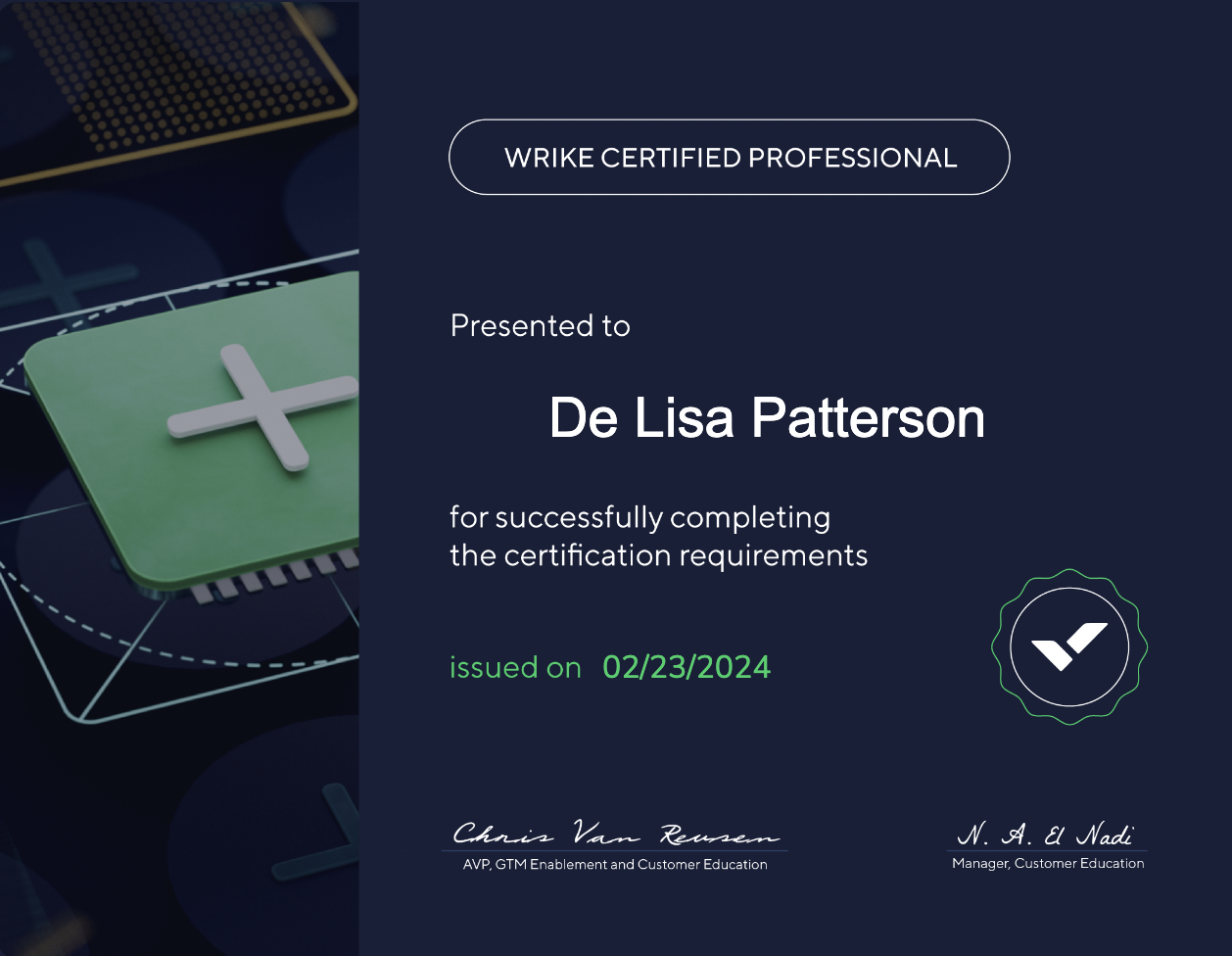Introduction: Embarking on the journey to becoming a certified professional in any field requires dedication, perseverance, and a deep understanding of the subject matter. In the realm of project management, proficiency in utilizing specialized tools is essential for success. One such tool, Wrike, has gained prominence for its comprehensive project management capabilities. Recently, I undertook the challenge of passing the Wrike Professional Exam, an endeavor that not only tested my knowledge but also enhanced my skills in project management. In this blog post, I'll share my experiences and insights gained from this journey.
Understanding Wrike: Before delving into my exam preparation, it's crucial to understand what Wrike is and why it's significant in project management. Wrike is a cloud-based project management software that enables teams to collaborate, plan, track progress, and manage tasks efficiently. Its versatile features include task management, Gantt charts, time tracking, reporting, and integrations with other tools, making it a comprehensive solution for various project management needs.
Preparation Phase: Preparing for the Wrike Professional Exam required a structured approach. I started by familiarizing myself with the Wrike platform, exploring its interface, and understanding its core functionalities. I also took advantage of online resources provided by Wrike, including documentation, tutorials, and webinars, to deepen my understanding of advanced features and best practices.
Additionally, I leveraged practice exams and sample questions to assess my knowledge and identify areas that needed improvement. This iterative process helped me pinpoint specific topics such as task dependencies, resource management, and workflow automation, which required more attention.
Hands-on Experience: As the exam date approached, I intensified my hands-on experience with Wrike by working on mock projects and simulated scenarios. I created project plans, assigned tasks to team members, set up workflows, and monitored progress using Wrike's features. This practical experience not only reinforced my understanding of the platform but also honed my problem-solving skills in real-world project scenarios.
Collaborative Learning: A significant aspect of my preparation involved collaborating with peers and colleagues who were also pursuing Wrike certification. We organized study sessions, shared tips and tricks, and discussed challenging concepts together. This collaborative learning environment not only fostered camaraderie but also provided valuable insights and perspectives from diverse experiences.
Exam Day: On the day of the exam, I felt a mix of nerves and excitement. However, my thorough preparation instilled confidence in my abilities. The exam consisted of multiple-choice questions and scenario-based simulations, testing both theoretical knowledge and practical application of Wrike's features. Drawing upon my preparation and hands-on experience, I navigated through the exam with focus and determination.
Success and Reflection: Upon completing the exam, I received the gratifying news of passing with flying colors. The sense of accomplishment was profound, knowing that my dedication and hard work had paid off. However, beyond the certification itself, the journey taught me invaluable lessons in project management, problem-solving, and continuous learning.
Conclusion: Passing the Wrike Professional Exam was not just a milestone in my career journey but also a testament to the power of dedication, preparation, and collaborative learning. Mastering project management tools like Wrike opens doors to new opportunities and enhances one's ability to drive success in complex projects. As I continue to apply my newfound knowledge and skills in my professional endeavors, I am reminded that learning is a journey, and each step forward brings us closer to our goals.


